Are you thinking about pursuing a career in the veterinary field? A veterinarian resume will be your first step on the job market. Before you begin writing, check out our helpful veterinarian resume example and writing guide. You may have previously thought you need to become an animal trainer or zoologist to enter this industry. However, there are many other career options within the veterinary field. For instance, you can become a certified vet assistant or work as an animal care technician. You could also pursue a job as an animal nutritionist or feed company representative. A veterinarian is a person who has completed formal education in veterinary medicine and practices these skills with animals. This simple description shows how much details matter when writing your resume as a veterinarian.
Veterinarian Resume Example

Download This Veterinarian Resume as PDF
Veterinary Technician Resume Example
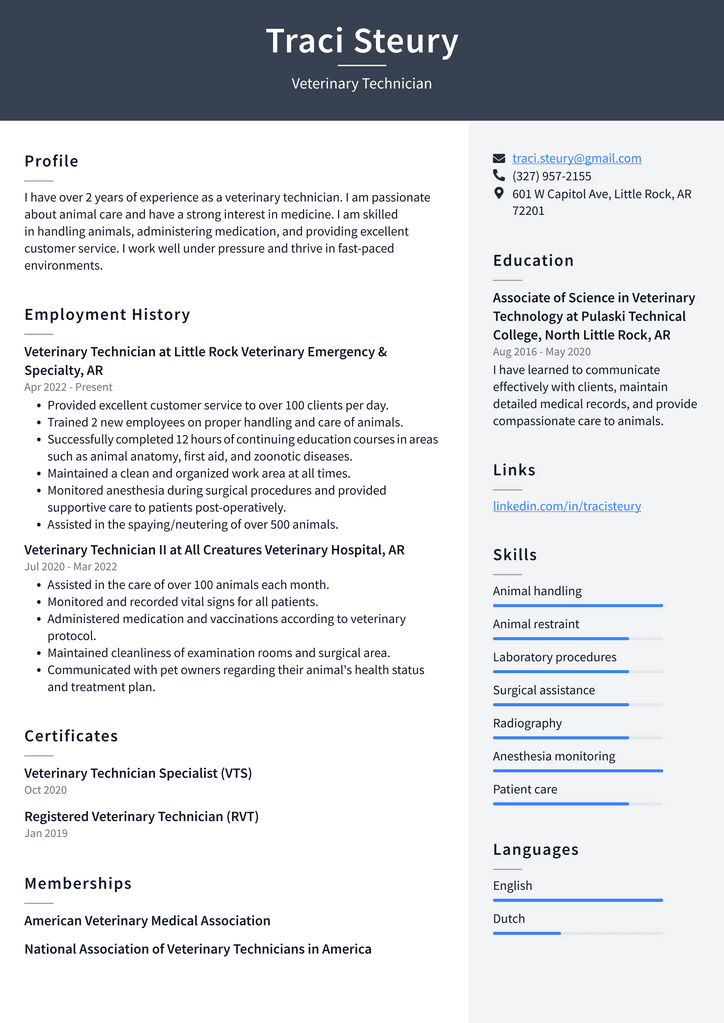
Download This Veterinary Technician Resume as PDF
Veterinary Nurse Resume Example
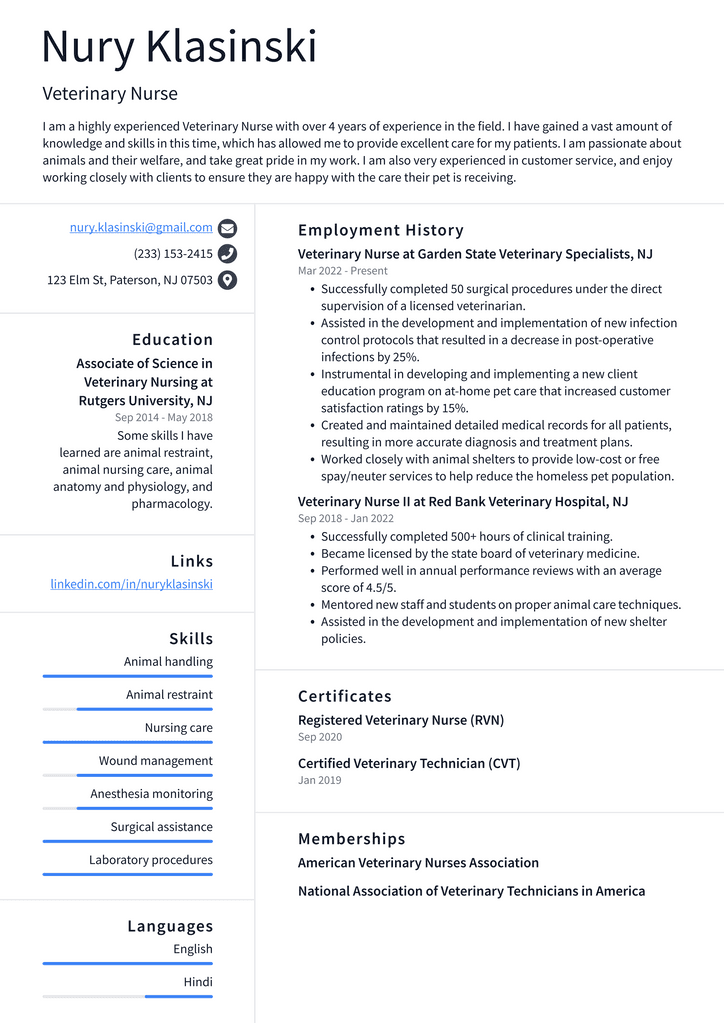
Download This Veterinary Nurse Resume as PDF
Veterinary Assistant Resume Example
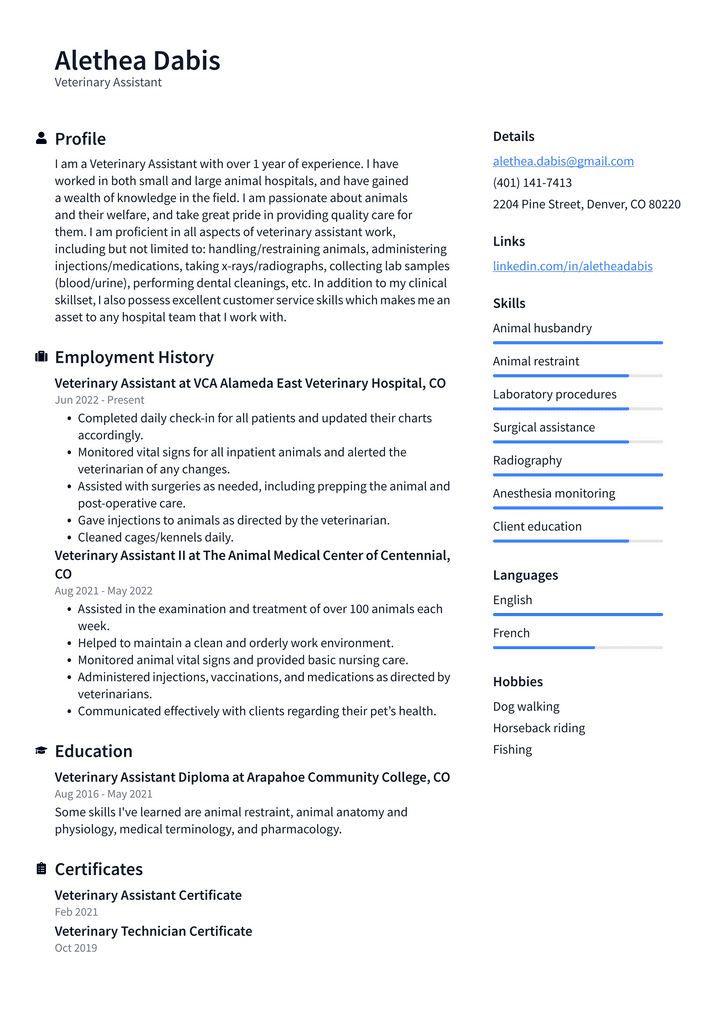
Download This Veterinary Assistant Resume as PDF
Veterinarian Anesthesiologist Resume Example
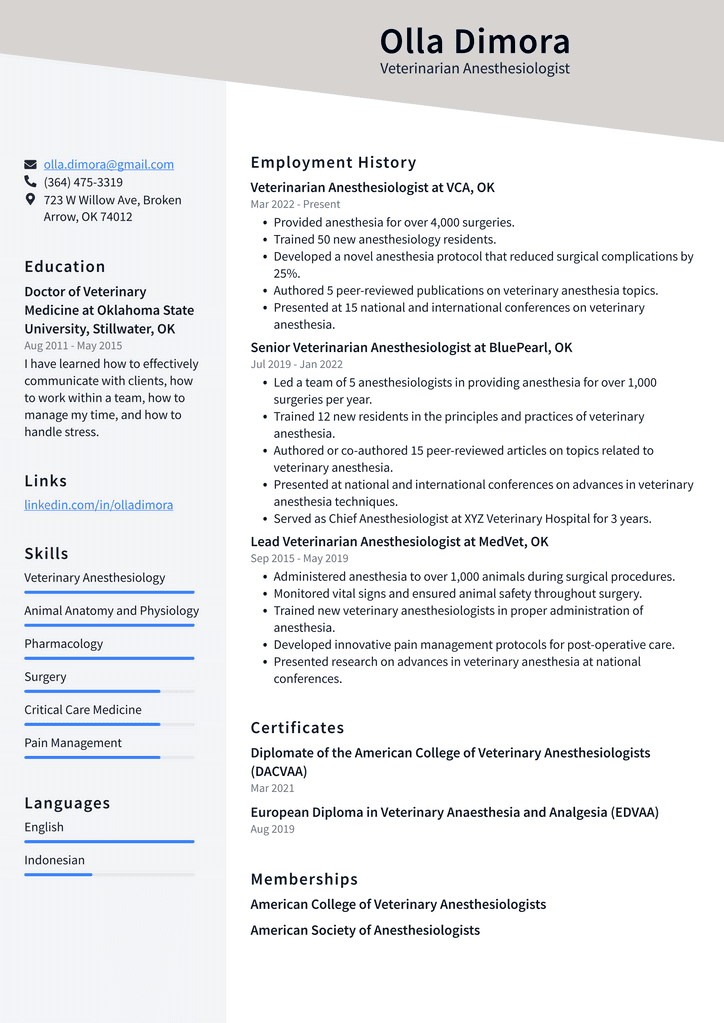
Download This Veterinarian Anesthesiologist Resume as PDF
Veterinary Pathologist Resume Example
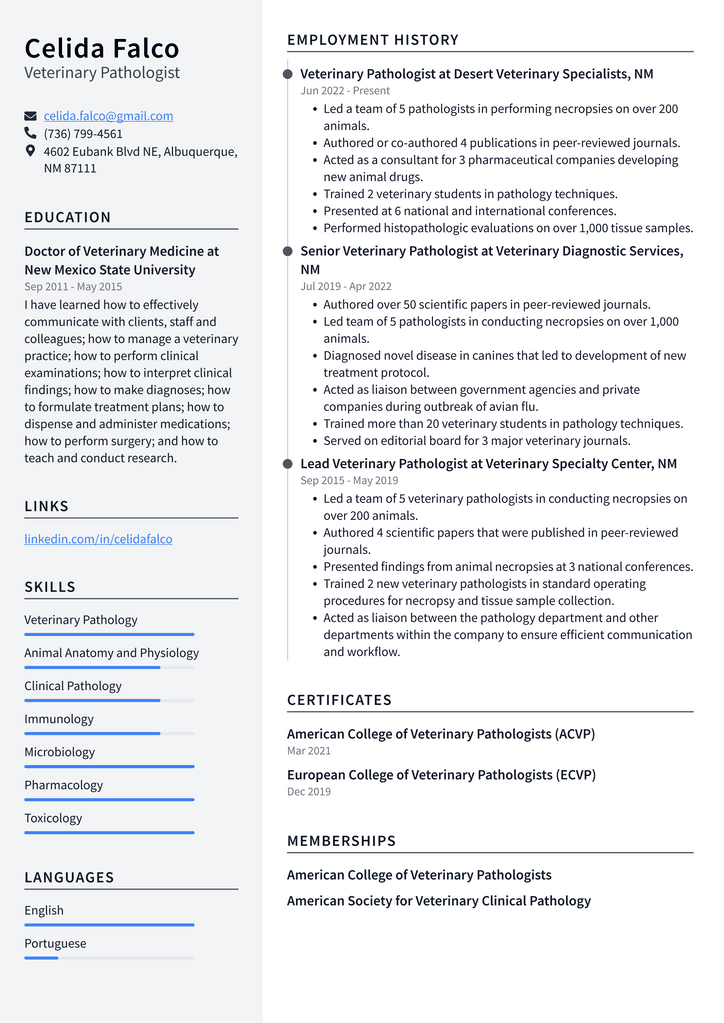
Download This Veterinary Pathologist Resume as PDF
Veterinary Epidemiologist Resume Example
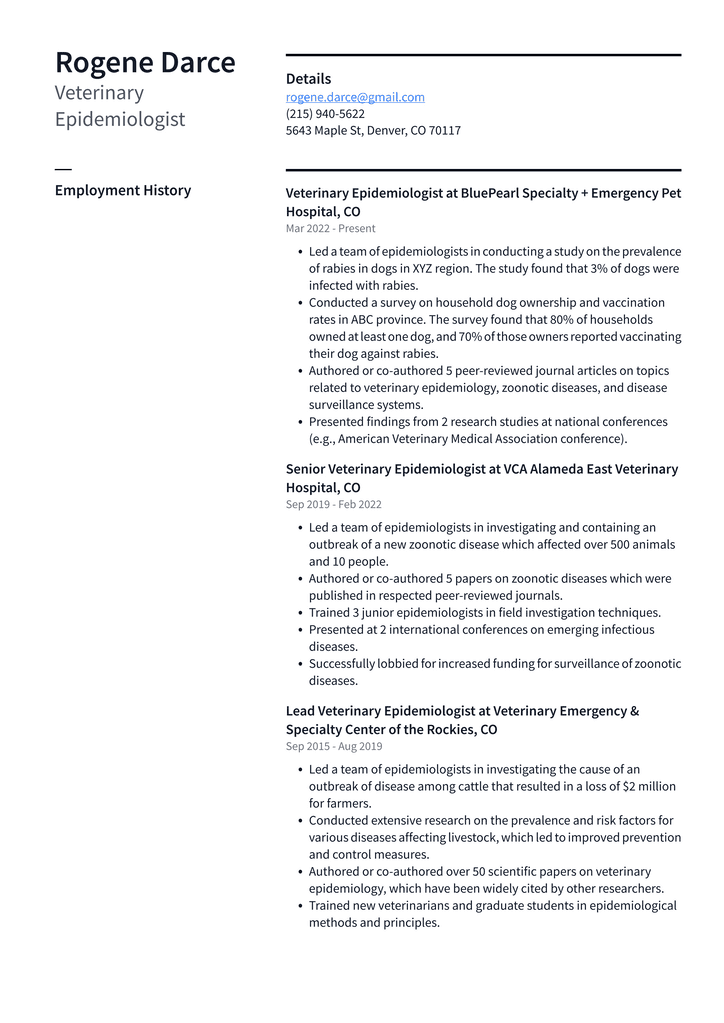
Download This Veterinary Epidemiologist Resume as PDF
Choosing the Best Format
A veterinarian’s resume is typically formatted chronologically, with the most recent position listed first. However, there are other resume formats that you could consider. For instance, you could write a functional resume if you have gaps in your employment history. In addition, a hybrid or combination resume could be best if you plan to apply to jobs outside the traditional veterinary field. Be sure to consult a professional before deciding to ensure your resume will be an effective tool for securing job interviews.
Resume Tips for Veterinarians
– Your resume should reflect your education and skills relevant to your career goals. You could include it as a secondary qualification if you have experience in an unrelated field. – There are many different types of veterinarians, and each has its job duties. Be sure to tailor your resume to the position you are applying for and emphasize relevant experience. – Be sure to include your name and contact information in a header at the top of each page. If you are applying for multiple positions, include different header information on each page. – Avoid using capital letters and excessive white space on your resume. – You may also want to include a cover letter explaining why you are pursuing a career in veterinary medicine and your specific interest in the employer. – If you are pursuing a career in veterinary medicine, your resume should reflect these skills. Avoid adding unrelated skills or job duties to your resume. – You may also want to include a list of references with contact information. This can be listed on the same page as your references or on a separate reference page.
Things to Include on a Veterinarian Resume
Your veterinarian resume should include a brief introduction and a section listing your skills and qualifications. Each team should be listed in reverse chronological order with your most recent work experience first. If you have gaps in your employment history, you can include additional skills you developed during this time. Be sure to include the following information on your resume: – Education: List your degree and any honors or achievements related to your studies. Include your major and minor if they are relevant to your career goals. – Employment: Include the name of your employer, job title, and length of employment. Be sure to include the location if you worked in a different city than where you currently live. – Skills: Highlight specific skills that are relevant to the veterinary field. You could separate these skills into categories such as veterinary, computer, and communication skills. – Additional: Include any other experience or accomplishments that you believe would be valuable to an employer. – Languages: Include any language skills relevant to your career goals. – References: Include the contact information for three references with brief details about their relationship with you.
Other Important Data to include in your resume
– Salary history: If you have salary expectations for a specific position, include this information on your resume. – Reason for leaving previous jobs: If you have left a previous job, include your reason for leaving. However, you do not want to come across as rude or ungrateful. Instead, you want to emphasize that the reason has no bearing on your ability to complete a job well. – Professional memberships: If you are a member of a professional organization related to veterinary medicine, be sure to include this on your resume. – Volunteer experience: If you have completed volunteer work related to veterinary medicine, you may want to include this on your resume. – Computer skills: Veterinary professionals use computers for many tasks. Be sure to include relevant computer skills on your veterinarian resume.
Conclusion
A resume can be complex, especially if you’re unsure what information to include. Veterinarians have a wide range of skills that they use every day. Make sure your resume reflects all the skills you want potential employers to know. When writing your resume, ensure you include all the information that an employer will want to see. Your resume is your chance to show employers that you are the right person for the job. With the right veterinarian resume, you can do just that.